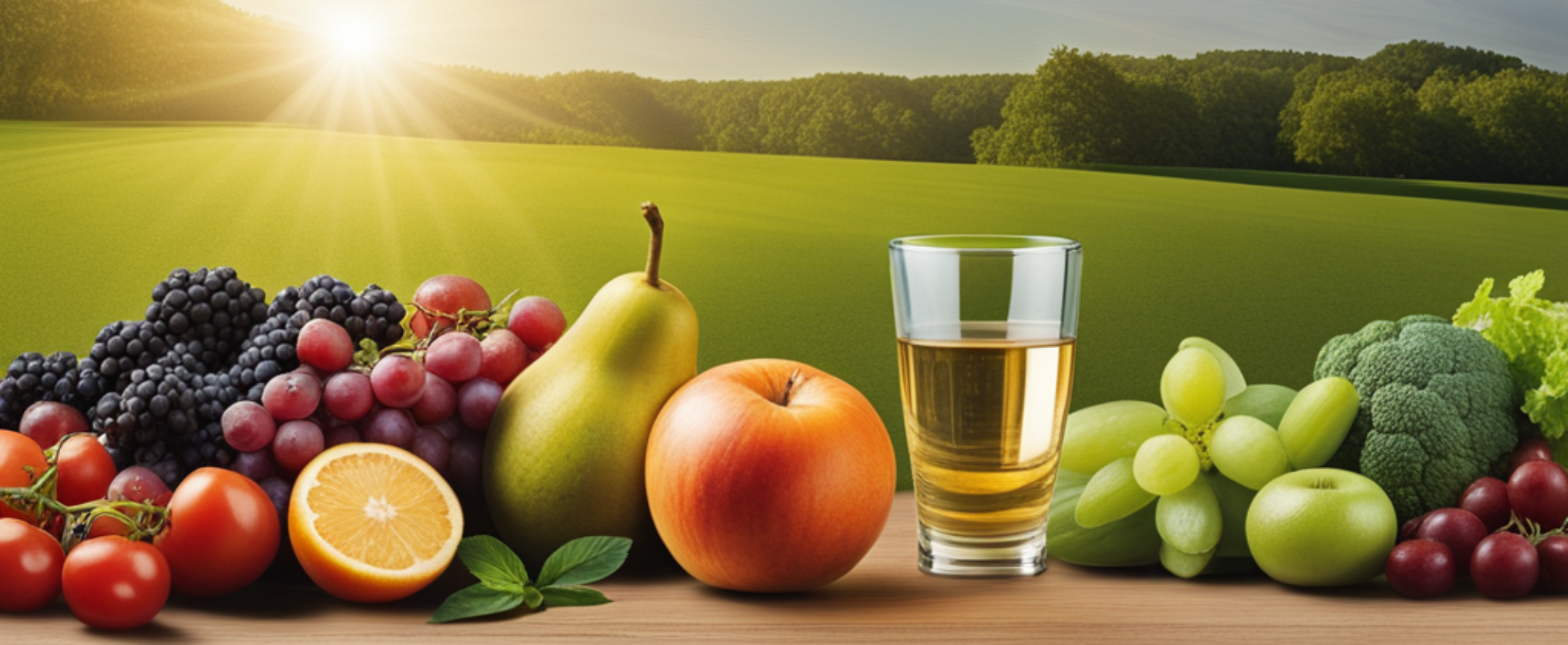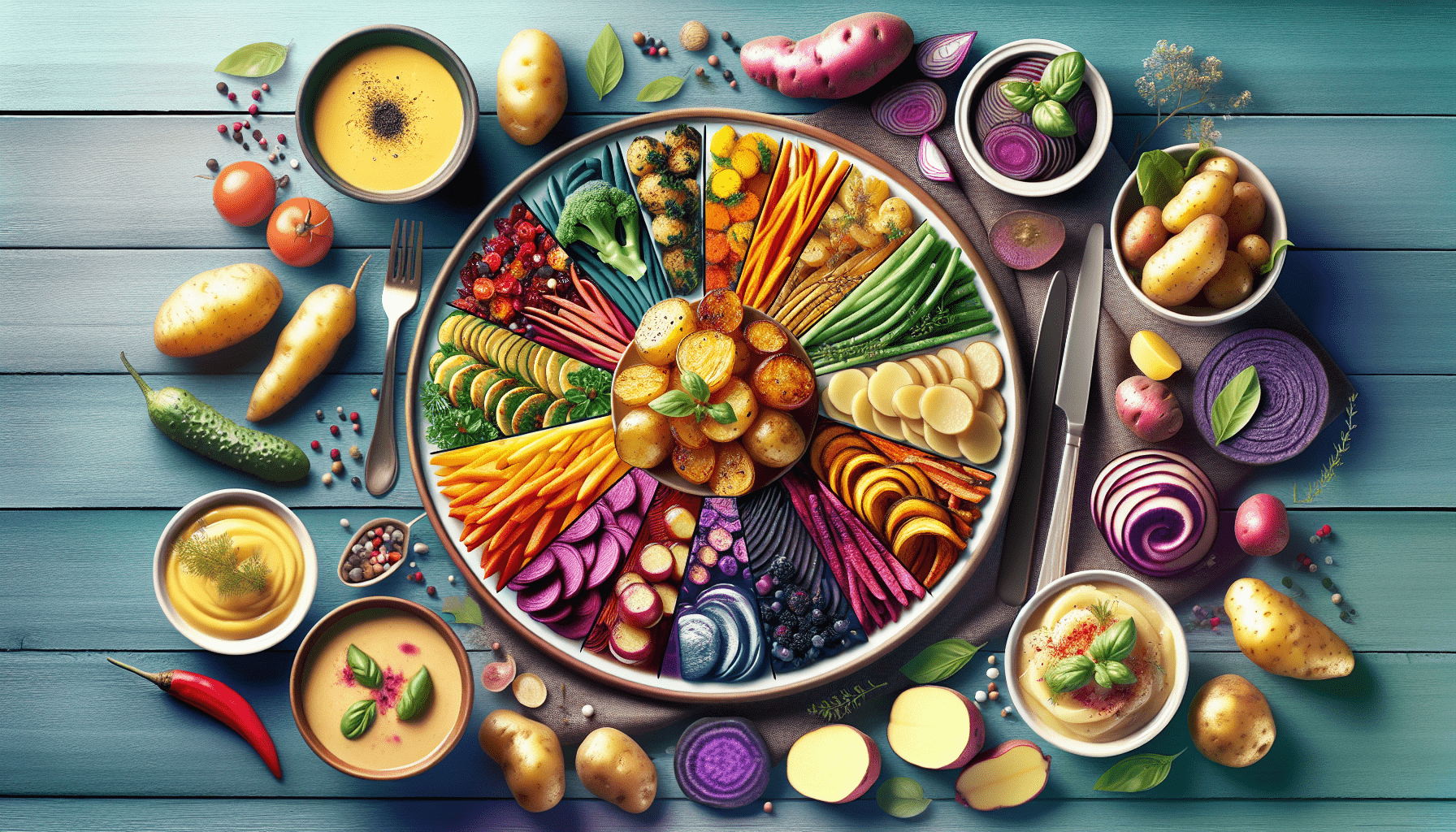Hey there! Have you ever wondered if there’s a way to lose weight and still enjoy delicious food? Well, look no further! In this ultimate guide to the potato diet, we will explore the incredible benefits and surprising versatility of everyone’s favorite root vegetable. From its humble beginnings to its rise as a popular weight-loss tool, potatoes have proven to be far more than just a tasty side dish. So, get ready to dig in and discover how the potato diet can help you achieve your health and fitness goals while satisfying your taste buds along the way!
What is the Potato Diet?
Definition
The Potato Diet is a type of diet that revolves around consuming mainly potatoes for a specific period of time. The idea behind this diet is to restrict food choices to potatoes in order to achieve weight loss and improve overall health. While this may sound unusual, potatoes are actually a nutritious and versatile food that can be incorporated in various ways into a balanced diet.
Origin
The Potato Diet gained popularity after the release of the book “The Potato Hack: Weight Loss Simplified” by Tim Steele. Although potatoes have been a staple food in many cultures around the world for centuries, the idea of using potatoes as the main source of nutrition in a diet gained attention in recent years. The Potato Diet offers a different approach to weight loss and has garnered a following due to its simplicity and potential effectiveness.
Is the Potato Diet Effective?
Weight Loss
One of the primary reasons why people turn to the Potato Diet is its potential for weight loss. Potatoes are low in calories and fat while being high in fiber, which can help you feel satisfied and full for longer periods of time. By consuming mainly potatoes, you naturally reduce your overall calorie intake, leading to gradual weight loss over time. However, it is important to note that the Potato Diet should be used as a short-term weight loss strategy and not as a long-term solution.
Nutritional Value
Potatoes are often wrongly associated with being an unhealthy food due to their high carbohydrate content. However, when consumed in moderation and as part of a balanced diet, potatoes can provide a range of essential nutrients. They are a good source of vitamin C, potassium, and several B vitamins. Additionally, potatoes contain fiber, which is important for a healthy digestive system. By incorporating potatoes into your diet, you can ensure that you are obtaining these beneficial nutrients.
Benefits of the Potato Diet
High in Nutrients
Despite its reputation, the Potato Diet can actually be a nutrient-dense approach to eating. Potatoes contain a variety of vitamins and minerals that are essential for overall health. Vitamin C, in particular, is important for immune function and collagen production. Potatoes also provide potassium, which is necessary for maintaining proper muscle and nerve function. By including a variety of potatoes in your diet, you can benefit from these essential nutrients.
Fiber-Rich
In addition to the vitamins and minerals they contain, potatoes are also a good source of dietary fiber. Fiber is important for maintaining regular bowel movements and can help promote a feeling of fullness and satiety. By consuming potatoes, you can increase your fiber intake and support a healthy digestive system.
Low in Fat
Potatoes are naturally low in fat, making them a suitable food for those who are trying to reduce their fat intake. By choosing healthy cooking methods, such as baking or boiling, you can enjoy potatoes without adding excessive calories from added fats.
Getting Started with the Potato Diet
Consult a Doctor
Before starting any new diet, especially one that involves restricting food choices, it is important to consult a doctor or a registered dietitian. They can provide personalized advice and guidance based on your specific health needs and goals. They can also help you determine if the Potato Diet is suitable for you and recommend any necessary modifications.
Plan your Meals
To successfully incorporate the Potato Diet into your lifestyle, it is essential to plan your meals ahead of time. This will ensure that you have a variety of nutrient-rich potato-based dishes to enjoy throughout the diet. By planning your meals, you can also ensure that you are meeting your nutritional needs and avoiding any potential deficiencies.
Variety is Key
While potatoes will be the main focus of the Potato Diet, it is important to incorporate a variety of potato varieties to ensure that you are obtaining a wide range of nutrients. Russet potatoes, sweet potatoes, and purple potatoes are just a few examples of the many types of potatoes available. By including different potato varieties in your diet, you can add variety to your meals and maximize your nutritional intake.
Types of Potatoes to Include
Russet Potatoes
Russet potatoes are one of the most popular potato varieties and are readily available in most grocery stores. They have a starchy texture and are often used for baking or making fries. Russet potatoes are high in vitamin C, potassium, and fiber, making them a nutritious choice for the Potato Diet.
Sweet Potatoes
Sweet potatoes are a highly nutritious alternative to traditional potatoes. They are packed with vitamins A and C, which are essential for immune function and healthy skin. Sweet potatoes have a naturally sweet flavor and can be baked, roasted, or mashed for a delicious addition to your Potato Diet.
Purple Potatoes
Purple potatoes are not only visually appealing but also offer unique health benefits. They are rich in antioxidants, which help protect the body against damage from free radicals. Purple potatoes can be boiled, roasted, or used in various dishes to add a splash of vibrant color and additional nutrients to your Potato Diet.
Cooking Methods for the Potato Diet
Baking
Baking potatoes is a simple and delicious way to enjoy them on the Potato Diet. Simply scrub the potato, prick it with a fork, and bake it in the oven until tender. You can then add your favorite toppings, such as salsa, plain Greek yogurt, or steamed vegetables, for added flavor and nutrients.
Boiling
Boiling potatoes is another popular cooking method that can be used for the Potato Diet. Peel and chop the potatoes into small pieces, then place them in a pot of boiling water. Cook until tender, then drain and serve. Boiled potatoes can be enjoyed on their own or added to soups, stews, or salads.
Mashing
Mashed potatoes are a comforting and versatile dish that can be enjoyed on the Potato Diet. Boil the potatoes until tender, then mash them with a fork or potato masher. You can add a small amount of low-fat milk or vegetable broth for added creaminess. Serve as a side dish or use as a base for other recipes.
Grilling
Grilling potatoes is a great option for those who prefer a smoky and charred flavor. Simply slice the potatoes into wedges or thin rounds, then brush them with a little olive oil and season with your favorite herbs and spices. Place them on a preheated grill and cook until tender and slightly crispy.
Roasting
Roasting potatoes is an easy way to bring out their natural flavors and create a crispy texture. Cut the potatoes into bite-sized pieces, then toss them with olive oil, salt, and pepper. Spread them out on a baking sheet and roast in a preheated oven until golden brown and crispy. Roasted potatoes can be enjoyed as a side dish or used in salads and other recipes.
Recipe Ideas for the Potato Diet
Baked Potato with Vegetables
- Preheat the oven to 400°F (200°C).
- Scrub a russet potato and prick it all over with a fork.
- Place the potato directly on the oven rack and bake for about 45-60 minutes, or until the skin is crispy and the potato is tender.
- Meanwhile, chop a variety of vegetables, such as bell peppers, zucchini, and onions.
- Sauté the vegetables in a skillet with a small amount of olive oil until tender.
- Once the potato is done baking, slice it open and top it with the sautéed vegetables. Add your favorite herbs and spices for extra flavor.
Sweet Potato Soup
- Peel and chop two medium-sized sweet potatoes.
- In a large pot, heat a small amount of olive oil over medium heat.
- Add chopped onions and cook until translucent.
- Add the sweet potatoes, along with vegetable broth and any desired seasonings, such as garlic powder, paprika, and a pinch of cinnamon.
- Bring the mixture to a boil, then reduce the heat and simmer until the sweet potatoes are tender.
- Use an immersion blender or a regular blender to puree the soup until smooth.
- Serve hot and garnish with fresh herbs, such as parsley or chives.
Potato Salad
- Boil a combination of russet potatoes and purple potatoes until tender.
- Once cooked, let the potatoes cool before slicing them into bite-sized pieces.
- In a separate bowl, whisk together a small amount of Dijon mustard, olive oil, lemon juice, salt, and pepper.
- Add the potatoes to the bowl and gently toss them with the dressing.
- Add additional ingredients, such as chopped celery, finely diced red onion, and fresh dill.
- Mix well and refrigerate for a few hours to allow the flavors to develop.
Potential Drawbacks of the Potato Diet
Lack of Variety
One potential drawback of the Potato Diet is the lack of variety in food choices. Relying solely on potatoes for an extended period of time can lead to monotony and boredom. It is important to find creative ways to incorporate other nutrient-rich foods into your diet to avoid nutritional deficiencies and maintain long-term adherence to the diet.
Limited Protein
While potatoes are a good source of carbohydrates and fiber, they are not a significant source of protein. Protein is essential for many bodily functions, including muscle repair and synthesis. Therefore, it is important to include protein-rich foods, such as lean meats, beans, tofu, or dairy products, alongside potatoes to ensure an adequate intake of this important macronutrient.
Deficiency in Certain Nutrients
Although potatoes are nutritious, they do not provide all the essential nutrients that the body needs. By strictly following the Potato Diet for an extended period, you may risk deficiencies in key vitamins and minerals, such as vitamin D and calcium. It is important to consider supplementation and incorporate a wide variety of foods into your diet to ensure a well-rounded nutrient intake.
Tips for Success on the Potato Diet
Stay Hydrated
Drinking plenty of water is important for overall health and can also help you feel satisfied while on the Potato Diet. Aim to drink at least 8 cups of water per day to stay properly hydrated.
Stay Active
Physical activity is an important component of any healthy lifestyle. While on the Potato Diet, aim to incorporate regular exercise into your routine. Whether it’s walking, jogging, or participating in a workout class, staying active can enhance weight loss and improve overall well-being.
Listen to your Body
Pay attention to your body’s hunger and fullness cues while on the Potato Diet. It is important to eat when you are genuinely hungry and stop eating when you are comfortably full. This will help you maintain a healthy relationship with food and avoid overeating.
Conclusion
The Potato Diet is a unique approach to weight loss that can be effective when done correctly. By focusing on potatoes as the main source of nutrition, you can potentially achieve weight loss while still obtaining essential nutrients. However, it is important to consult a healthcare professional before starting any diet and to personalize and modify the diet to meet your individual needs and goals. Remember to incorporate a variety of potatoes, cooking methods, and supplemental foods to ensure a balanced and sustainable approach to the Potato Diet.

